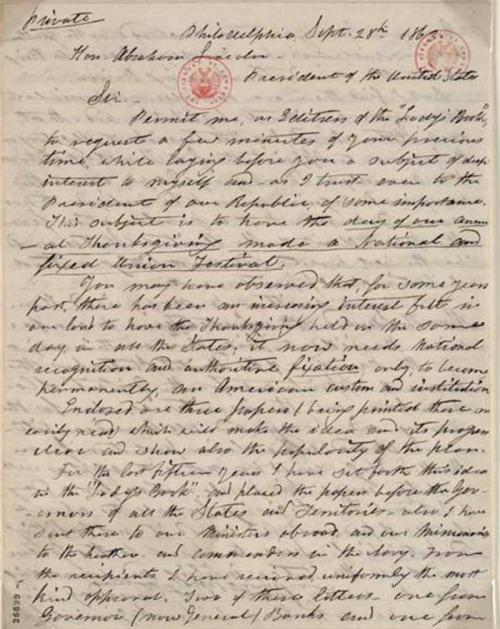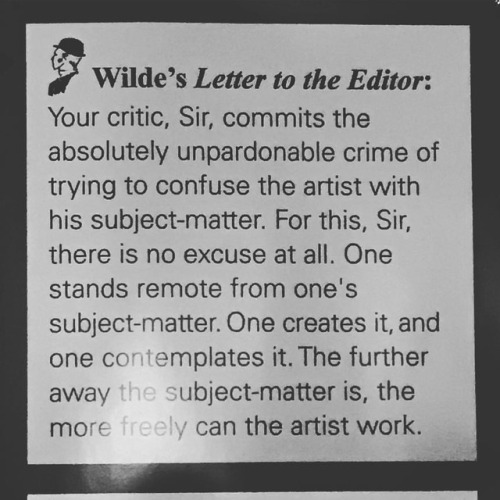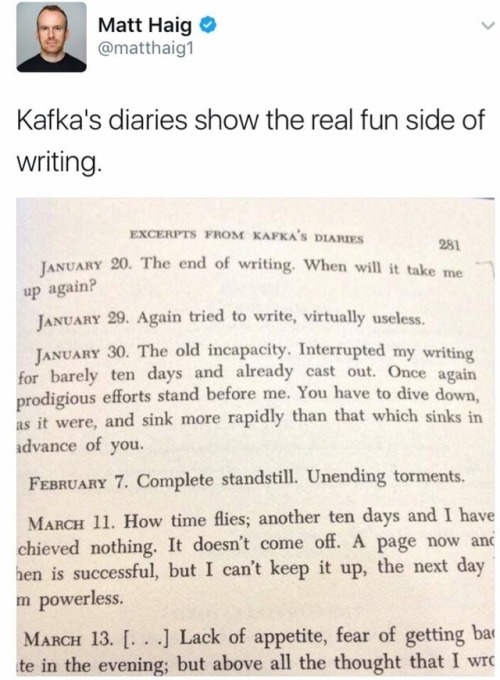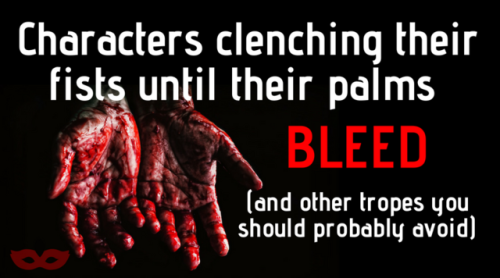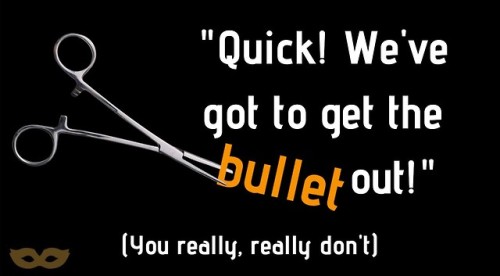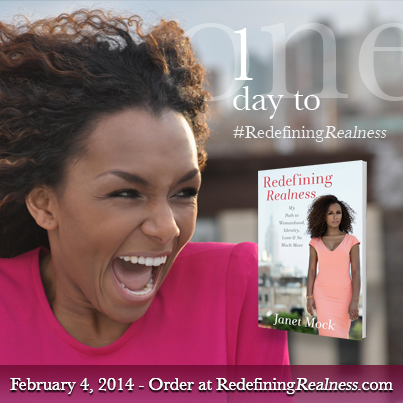#authors
I’ve started a story, now it’s up to you to continue it! Below I’ve written a short paragraph. Reblog this post and add the next paragraph yourself and let the chain continue until the story gets completed. You don’t have to put too much thought into it, this is just a writing exercise! Just have fun!
The setting sun disappeared behind the trees as I walked steadily towards my car. My exposed arms shuddered against the chill of the cool evening breeze. I glanced down at my wristwatch, which was barely visible in the fading light. 8 o'clock sharp. Taking a moment to marvel at my punctuality, I then reached for the driver’s side door handle. That’s when I heard my name being shouted from somewhere in the distance.
NOVEMBER 30 - LYDIA MARIA CHILD
Remembered for penning the popular children’s poem “Over the River and Through the Wood”, Lydia Maria Child often shocked audiences from the 1830s to the 1960s with her extremely liberal views. She called for the emancipation of slaves without any compensation to slaveholders, believing that women could not make significant progress in their rights until slavery was abolished.
Child’s 1833 work An Appeal in Favor of That Class of Americans Called Africans is said to be the first anti-slavery book published in the United States. She also wrote fictional short stories in support of her anti-slavery beliefs, often exploring how sexual exploitation affected both the enslaved and the slaveholder’s family. The more she delved into these concepts, the more negative reactions she received from readers.
This was not, however, Child’s first taste of controversy. In the mid-1820s, she published a historical romance novel entitled Hobomok: A Tale of Early Times, writing under the anonymous pseudonym “an American”. The book caused quite a stir in the literary community due to its central relationship - an interracial marriage between a white woman and a Native American man.
Decades later, Child would publicly endorse Native American rights, compiling various pamphlets throughout the 1860s. One of her pieces, An Appeal for the Indians, called upon government officials and religious leaders to make a difference, leading to the establishment of the US Board of Indian Commissioners in 1869.
Post link
NOVEMBER 26 - SARAH JOSEPHA HALE
If you’re off from work for Thanksgiving today, then you might want to express your gratitude for Sarah Josepha Hale. Beginning as far back as 1827, the writer and women’s magazine editor tirelessly campaigned to make Thanksgiving a national holiday in the United States.
“The last Thursday in November – shall it be THE DAY?”shewrote in a 1853 editorial. “If the State Governors will this year unite on this day, there is little doubt but a precedent will be established, and become a fixed custom forevermore.”
Hale’s efforts were dismissed by four US presidents in a row. It wasn’t until 1863 that Abraham Lincoln supported legislation for the cause, thereby putting an end to over three decades of advocating for the change. Thanksgiving joined Washington’s Birthday and Independence Day as the third national holiday in US history.
Beyond this initiative, Hale is also known as the author of the popular children’s nursery rhyme “Mary Had a Little Lamb”, and her fundraising efforts were essential for the completion of the long-delayed Bunker Hill Monument in Charlestown, Massachusetts. Through asking her readers to donate and organizing a week-long craft fair at the Quincy Market, she raised a total of $30,000 to help finish the project.
Hale’s politics were, at times, quite shaky by modern standards. She pushed for women’s education and the entrance of women into the workforce, yet she opposed women’s suffrage in favor of the “secret, silent influence” women could have on male voters. She was an adamant opponent of slavery, yet one of her novels suggested that all freed slaves should be relocated to Liberia.
Alas, in her time, Hale’s views were seen as progressive. While her track record isn’t perfect - and some might say she reinforced certain stereotypical gender roles regarding domesticity - she was a pioneer for women in the literary world and helped push forward the careers of other female writers.
And while Thanksgiving itself may not be a perfect holiday - with roots that link back to the massacre of Native Americans - there are, indeed, some positive traditions that have endured beyond the holiday’s problematic history. Regardless of her original intentions, Hale has given us a day to focus on the importance of family, charity and personal reflection.
Post link
Oscar Wilde’s response to a critic. ✒️
.
#amwriting #authors #writers #oscarwilde #writingquotes #authorsofinstagram #writersofinstagram #authorlife #artistsoninstagram #artist #artistofig #writerofig #artlife #creatives
Post link






Hay Festival shots part 2.
Shots by Billie Charity
First time seeing these fanfic author categories and just had to bookmark it.
The Author Spotlight Questions and Answers is here with a new addition - this time we have a post from Simon Kewin, who is talking about his new book ENGN, and life in the English countryside.
https://curiosityquills.com/column-posts/simon-kewin/
Post link
book buying and simply strolling through a bookstore, exploring and touching your favourite books and having a faint thought of maybe buying them but realising you’re broke are two entirely different things.
it’s always the ones who want you the most not doing anything to win you.
The moment is tense. The character is looking at something that makes them so angry. And the reader can feel that anger, can feelthe tension building. And then…
“He doesn’t realize how hard he’s clenching his fist until he looks down and sees bloody half-moons pressed into his palm.”
Aaaaannndd it’s gone.
All that tension and build-up just deflates in a single moment due to this line, only to be replaced by a heavy sigh, or worse, a physical eye-roll.
There’s 3 reasons why this scene (played out in so many books) garners this reaction from readers.
1. It’s overdone
It happens so often it’s become cliche. Like…really cliche. If you think your character is the first character to have this reaction, I’m sorry to inform you that this is very much not the case. And if you’re thinking “well I don’t mind if it’s original, because it fits the scene,” well…continue to reason #2
2. It’s melodramatic
It’s way too over-the-top. No one does this in real life. Especially for like…contemporary fiction? Like at least if the fate of the universe is at stake it’s easy to see how the author could have gone there. But I’ve seen so many times where it’s “average school boy is jealous” or “average school girl is mad at bully” type scenarios, which…no. No one gets so jealous they don’t realize they’re carving into their hands. Or even the ones where they donotice but they “like the pain because it grounds them”? But if your think it’s not melodramatic, well…continue to reason #3
3. It’s actually pretty much impossible.
Most of the time I see this, it’s a male character who doesn’t defy gender norms, or a female character that does. (And the “I’m not like other girls” trope is a whole other discussion) Meaning that 95% of the characters who do this have short or medium-length nails.
And here’s the thing: human skin is incredibly elastic. This means that it can stretch a LOT before it actually breaks. If the skin were pulled taut, you could discount some of this elasticity, however when the hand is curled into a fist, the skin of the palm is the most relaxed it can be. (Just take a look at all those wrinkles and folds!) Not to mention that the human fingernail is relatively blunt and spreads the force out over a larger surface area. And fortunately (unfortunately?) our grip strength just isn’t enough to break the skin of our palms with short-to-moderate length nails just by making a fist and squeezing.
I mean…just try it. I have short-ish nails and I couldn’t break skin even while squeezing it even tighter with my other hand. It wasn’t pain that stopped me from squeezing harder, it was just that the max force I could apply wasn’t enough.
If you need more proof, just look at punching. Professional fighters always keep their nails short-to-moderate length because if they punched someone with long nails, they risk cutting their own palm. But if landing repeated punches with short-to-moderate nails doesn’t cut someone’s palm, there’s no way that squeezing the fist alone would accomplish that.
Theycan leave little indentation marks, and those marks can hurt quite a bit and linger for a while. But don’t have the character clench their fist until their nails break skin or draw blood from their palms. It’s just not realistic.
When this rule doesn’t apply:
Now, of course, if your character is Lady Deathstrike or some kind of wolfman or something and has claws or talons instead of fingernails, this might be different. In fact, if your character is new to these claws, and underestimates the force they can apply to their fist-clenching, then it might actually happen! However, (and this is a big however) they would notice. They would react the same way they would if they stepped on a nail or piece of scrap metal and cut their foot. Don’t just have them staring broodily at their enemy as their claws slowly carve into their palms and have them not even wince. That’s back to reason #2
Other tropes along the same line
Reasons #1 and #2 can also be said for the “character bites lip until it bleeds” trope. However, this one is technically 100% possible, as humans have more than enough bite strength to puncture our delicate lip tissue. Except that our brains won’t let us just do that willy-nilly. It hurts too much and our reflex (even while distracted with anger/jealousy/frustration) is to stop biting down once that pain fires off.
This one is at least able to be modulated easily for the same general effect. For example, the character could chew at a little bit of dry skin on their lip and, in their distracted anger/jealousy/frustration, cause that bit of skin to tear too deeply (we’ve all been there, amirite?). This would hurt, potentially bleed, and almost certainly give them that metallic taste in their mouth we know you were looking for.
Keep in mind! Either way, unless the person just permanently maimed their lip, the blood should be kept minimal. I’ve read books where the blood “gushes into their mouth” from a frustratedly-bitten lip, and…no. There’s no way that should do that.
Hope this helps some of you with your writing journey!
Good luck and good writing!
Post link
No really.
Taking the bullet out does nothing to help the person, and if your characters are in the field instead of a hospital, may actually cause more harm than good.
Imagine for a moment that you (for reasons unknown to all) decided to turn your sink on wide open, pick up a handgun, and shoot the pipes under your sink.
Maybe it hit the drain pipe, which would be bad, since all the water coming through the faucet is now dribbling out all over the floor. But even worse would be if it hit the water intake pipe, right? In that case, water under high pressure would be spraying everywhere!
Two bad options if you for some reason shoot your sink:

The vascular system of the human body is essentially one big set of pipes. The drain pipe? Those would be veins—under low pressure, but still very bad to leak from. The water intake pipe? Those would be the arteries—under high pressure and VERY dangerous to puncture.
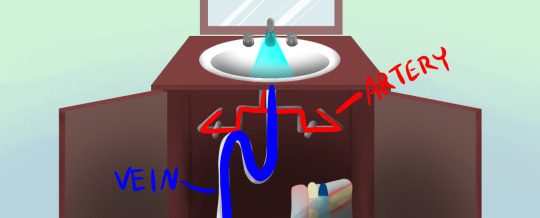
But back to the sink example. Say you shot the pipes and hit the drain pipe (vein). Now there’s water pouring out onto the floor. Your roommate says “Quick! Wrap your hand around the pipe to hold the water in!” (“Put pressure on the wound!”) And you do! Water is still slipping out from under your hand, but it’s leaking a lot less than before! Right now, you COULD find some duct tape (bandages) and secure the pipe further so you don’t have to keep holding it.

Instead, however, you say to your roommate: “Hold on! I’ve got to find the bullet!” You let go of the pipe (stop putting pressure on the wound) to dig around in the cabinet (body) for the bullet. Seconds, maybe even minutes pass, and that pipe is freely gushing out water the whole time.
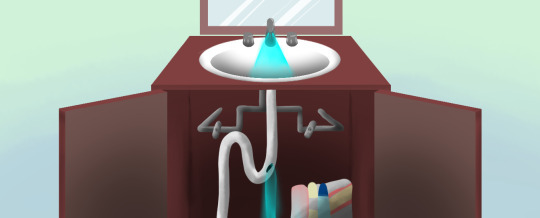
Finally, you find it! You pry the bullet out of the wood, hold it up to your roommate, and drop it in a little metal dish with a ‘clink’.
“Job well done,” you tell yourself. “We’re out of the woods now.”
Except that, you know, the pipe is still damaged and gushing water out onto the floor, and the bullet wasn’t actually doing anything harmful inside the cabinet. Also, while you were rummaging around for little Houdini, you weren’t putting pressure on the pipe, so that sink (patient) lost a whole lot of water (blood) that it didn’t need to. Can you imagine how much more it would have been if you’d hit the water intake pipe (artery) instead?
I know what you’re thinking. “But in movies—!!” And I know. But here’s the thing: Hollywood? It’s a bouquet of lies. I’m sorry. I really am.
In fact, even that distinctly bullet-shaped thing you usually see pulled out of people in movies may not always be true. Many times the bullet mushrooms out or becomes malformed. Depending on what that bullet ran into (like bone) it might have even broken into a dozen pieces. Try digging those out of your protagonist!
Now sometimes, but not always, doctors WILL remove the bullet (or fragments of bullet). For example, if they’ve already got the patient in surgery, and AFTER they’ve already repaired any veins, arteries, and organs to the best of their ability. Or if the patient doesn’t need surgery (if it didn’t hit anything major and is just lodged in the muscle or fat) but doctors notice that the bullet or fragment is likely to cause damage if left inside the patient.
More often than not, however, the bullet isn’t doing anything actively damaging while inside the patient, or the removal of the bullet would be more dangerous than leaving it where it is. This is why most bullets don’t get removed at all.
This is true if your characters are at a hospital, but ESPECIALLY if this is a field job. If trained physicians with all the tools at their disposal, blood transfusions, and a sterile environment most likely won’t take the bullet out, then Dave McSide-Character should DEFINITELY not be sticking his filthy, 5-straight-chapters-of-parkour fingers or his I-just-stabbed-a-guy-but-I-wiped-the-blood-off-on-my-pants knife inside the protagonist to fish around for some bullet that isn’t even causing harm. The recommended way to deal with a gunshot wound in the field? Pack it with gauze (or yes, even a filthy we’ve-been-on-the-run-for-two-weeks-in-the-same-clothes t-shirt if that’s all you have. Wound infection is a different post) and keep constant pressure on it.
Remember: stopping the leak in the sink is the most important thing. Not rummaging around in the cabinet for the bullet. Taking it out does literally nothing.
Two perfectly realistic reasons why you might have a character take the bullet out:
Now, sometimes, depending on the characters or the world you’re writing in, this might be different. In some instances, you might want to write the lead-scavenger-hunt scene in!
The first reason is if they just don’t know
And that’s really important when writing realistically. Not everyone is a professional in emergency wound care. Most people get all their knowledge of emergency medicine from Grey’s Anatomy and House M.D.
- If your character has any medical training? Probably don’t do it
- If your character has any military or police training? Some know, some don’t, so writing it either way is believable. It’s a toss-up, but they DO have more experience with gunshot wounds (either personally, witnessed, or in training videos and word of mouth)
- If your character is a 17-year-old art student who saw blood for the very first time two chapters ago? Well now that character might just try digging for the bullet
And hey, maybe they’re like “I’m gonna get the bullet out!” but another character (the one who was shot, another character in the room, maybe even a 911 operator) steps in and says “No, no, no! Just put pressure on it!”
But regardless, injured characters in movies are always suddenly on the mend after the bullet is taken out. The vitals start to rise, they aren’t gasping for breath, their hand closes firmly around the love-interest’s hand, etc. And this doesn’t happen. Regardless of what your characterdoes, the rules of biology are still in play.
In the end, though, that bullet’s just minding its own business in there. The #1 priority is fixing the damage it caused on the way in.
The second reason is if the bullet is special
This is more for the SciFi/Fantasy writers.
If your character is a werewolf and was just shot by a silver bullet which is stopping their healing process and is slowly killing them? Yeah, take it out
If the bullet is actually some sort of tiny robot designed to burrow into their organs one by one? Yeah, take it out.
If the bullet had a spell or curse placed on it? Yeah, take it out.
If they need to get transported up to the med bay, but the bullet would cause some kind of issue with the transporters? Yeah, take it out.
But in all of these examples, the bullet has to be inherently dangerous. For normal humans with normal bullets, its just a hunk of lead.
Hope this helped some of you action writers out there!
Good luck and good writing!
Disclaimer: In the event that you or someone you know has been shot, the best thing to do for them is call for an ambulance and follow the instructions provided by the operator. This post is intended to give accurate writing advice to authors and script writers, but I am not a medical professional. While I do believe that the research that I’ve done on this topic is factually accurate, it should not be taken as actual medical advice.
Post link
Warning: This is a rant!
I’m reading this romance book and it’s bad. Granted, I’m only 16% into the book, but I’m truly hating it. The book is bad in that hard to explain way, where the writing is bad. It’s not the grammar or editing, but just the writing. I’m not going to say the name of the book, but here’s a screenshot of 1 page of it from my iPhone kindle. But first context.
The main character is 18 and she dreams of independence and wants to go to college with dreams of a Ph.D. But when she’s sold off by her father into an arranged marriage, she just accepts it. Her father is a U.S. senator (the most believable part of the whole situation) and he’s marrying her off to a rich family so that family can back his next campaign. Her new fiancé is only 26, and he’s handsome, so that’s fine. Her father could have married her off to an old bad of dirt, but he didn’t. She met her fiancé at her 18th birthday party, he was her birthday present (no joke). The scene below happens 3 months later, at their second meeting — their wedding day.

Now, I often find romance novels to be problematic because of all the genres out there, romance seems to be one where many bad writers make their names. The main character is compelling and her story has a lot of potential, but I have to keep rolling my eyes to the back of my head because of how badly this writer keeps butchering the story and characters. It’s bad.
I’ve read really well done books about dominant men and the women who love them. Books where the idea of, “you married him and so he owns your body now,” runs rampant. I’ve accepted a lot of sketchy writing from authors in the name of a good and well told story, but this one is just so bad. My whole mantra while reading this has been, “she’s only 18, she probably doesn’t know any better.” ♀️
It seems to me that this author only knew what they wanted these characters to do, not how to actually write them doing it. So, things are just thrown at the reader and we’re expected to process it and it’s problematic implications and move on. The section that I highlighted above, that statement is incredibly sexist and demeaning to women, but it is said in the book with no modifiers and no push back. How can someone who just wants to break free from her father and go college just unquestionably accept that ridiculous advice. And even worst, this is the 1st book in a trilogy and I, for the life of me, don’t know how that is possible.
This is where I’m always unsure what to do next with these types of books. Do I keep reading in hopes that it gets better? Or do I just stop the torture, but never know what happened to these characters? This is the dilemma that these types of books place readers in. At it’s the dilemma they place me in, and it really sucks.
Curse Of The Gods By Jane Washington and Jaymin Eve

I love this book series. It’s a reverse harem book series set in an alternate fantasy universe. It’s a funny, crazy, and amazing series. I love the main character Willa and her absolutely ridiculous thoughts and actions. The later books do have sex scenes in them, but they totally add to the whole story line. I would recommend this series to everyone over 15.
P.S. also FU Wattpad for effing up the emoji uses and dropkicking your pm off a cliff and cursing the entire universe with the update from last year no one likes watching 2-3 unskippable ads after every chapter in a fanfiction and I used to be able to download my entire library for FREE when I joined can the old Wattpad come to the phone RN??? I don’t why I cried but I think it’s cuz I remembered for the first time since I hated you that I used to love you will the real slim watty please stand up
The biggest cliches are actually the least cliche since everyone avoids them like the plague.
Have an idea for your story but it’s too cliche? Nothing is too cliche. Things are cliche because people can’t get enough of that shit. Go and make that bitch the hugest cliche anyone has ever fucking seen and I will fully endorse it.
“Home is people. Not a place. If you go back there after the people are gone, then all you can see is what is not there any more.”— Robin Hobb, Fool’s Fate



